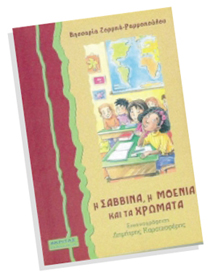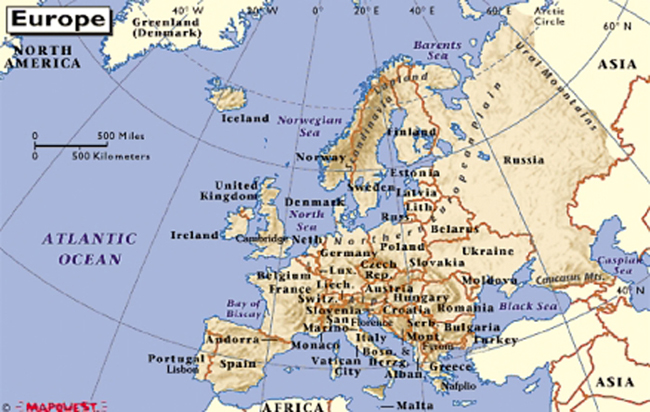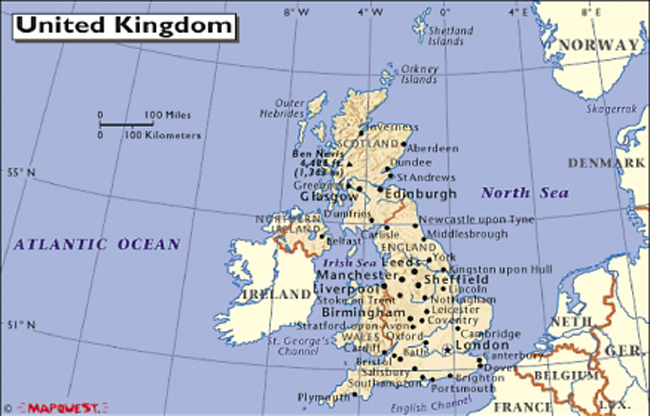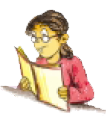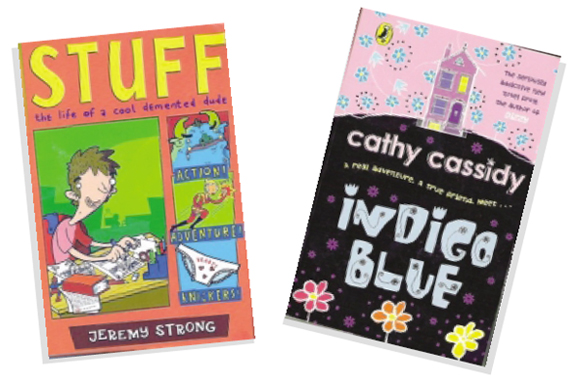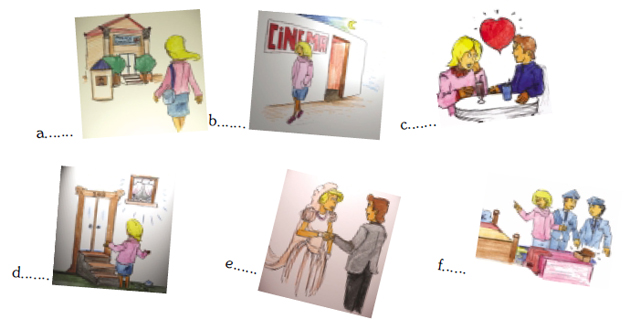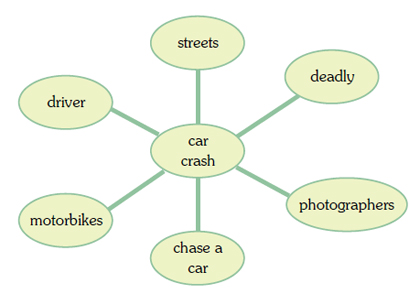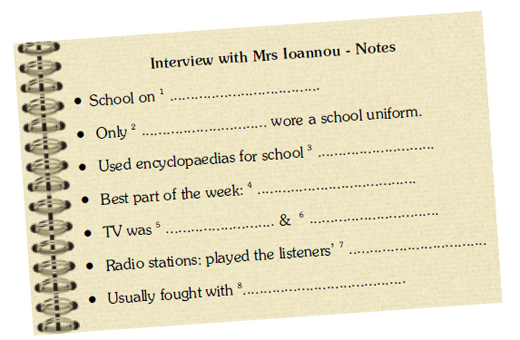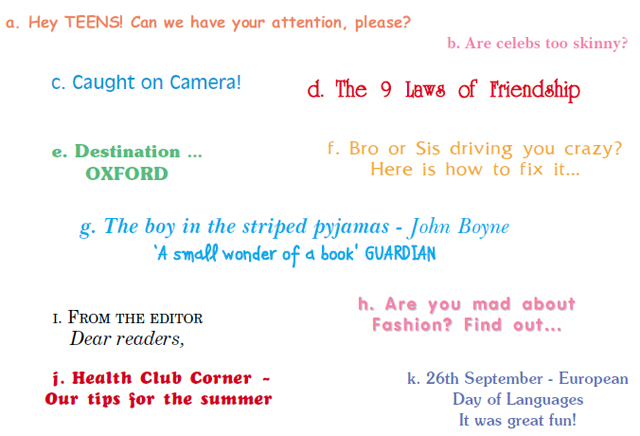Speaking Appendix
| Unit 2 | Lesson 3 |

| Student B Read the blurb of this book and tell your English-speaking friend about it. The words in the box may help you. Don't try to translate the text. Use your own words. |
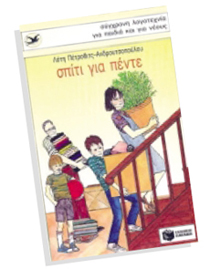 |
get married to move to
record moments new member |
Λότι Πέτροβιτς - Ανδρουτσοπούλου
σπίτι για πέντε
Ο Φίλιππος 12 ετών, έχει καινούρια οικογένεια. Η μητέρα του παντρεύεται τον Ορέστη,
πατέρα του εννιάχρονου και πολύ ζωηρού Άρη. Μετακομίζουν σε καινούριο σπίτι. Ο
Φίλιππος έχει ένα μικρό κασετοφωνάκι και καταγράφει την καθημερινή ζωή της οικογέ-
νειας. Tο ίδιο κάνει και ο Άρης. Η μητέρα γράφει τα νέα στην αδερφή της στην Κρήτη και
ο Ορέστης τηλεφωνεί συχνά στον καλύτερό του φίλο. Έχουν καλές στιγμές, κωμικές στιγ-
μές αλλά και τραγικές στιγμές μέχρι που έρχεται ένα νέο μέλος στην οικογένεια και το
σπίτι γίνεται σπίτι για πέντε.
Για παιδιά από 9 ετών και εφήβους
Εκδόσεις Πατάκη
Συλλογή Χελιδόνια
σπίτι για πέντε
Ο Φίλιππος 12 ετών, έχει καινούρια οικογένεια. Η μητέρα του παντρεύεται τον Ορέστη,
πατέρα του εννιάχρονου και πολύ ζωηρού Άρη. Μετακομίζουν σε καινούριο σπίτι. Ο
Φίλιππος έχει ένα μικρό κασετοφωνάκι και καταγράφει την καθημερινή ζωή της οικογέ-
νειας. Tο ίδιο κάνει και ο Άρης. Η μητέρα γράφει τα νέα στην αδερφή της στην Κρήτη και
ο Ορέστης τηλεφωνεί συχνά στον καλύτερό του φίλο. Έχουν καλές στιγμές, κωμικές στιγ-
μές αλλά και τραγικές στιγμές μέχρι που έρχεται ένα νέο μέλος στην οικογένεια και το
σπίτι γίνεται σπίτι για πέντε.
Για παιδιά από 9 ετών και εφήβους
Εκδόσεις Πατάκη
Συλλογή Χελιδόνια
adapted from: Σπίτι για πέντε - Λότη Πέτροβιτς - Ανδρουτσοπούλου /
Εκδόσεις Πατάκη (Συλλογή Χελιδόνια)
Εκδόσεις Πατάκη (Συλλογή Χελιδόνια)

